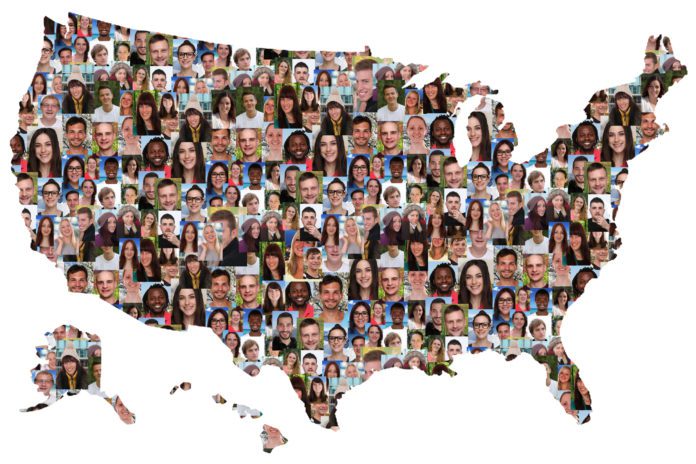It’s important to remember that a person’s legal status does not define who they are in Christ or their inherent worth as a child of God. But, we hear different terms to describe people who come to the United States. Here’s a helpful overview of what these terms mean.
Immigrant: Someone who has chosen to move to the United States. The most common way people immigrate to the U.S. is through family-based immigration where they are sponsored by a close relative like a spouse, parent or child.
Migrant: A generic term for anyone who moves within or outside his or her country for a variety of reasons. Typically, the term “migrant” is used to describe individuals who move to find better employment opportunities.
Refugee: A person who is typically outside their country of origin and who is unable or unwilling to return to their home country because of persecution or a well-founded fear of persecution on account of race, religion, nationality, membership in a particular social group or political opinion. There are over 1.4 million refugees in need of resettlement to a third country like the U.S. but only 11,411 refugees were resettled in the U.S. last year. Upon arrival in the U.S., refugees have a pathway to legal permanent residency and citizenship.
Asylum seeker: A person who has applied for refuge within the U.S. or at a port of entry because they are unable or unwilling to return to their home country because of persecution or a well-founded fear of persecution on account of race, religion, nationality, membership in a particular social group or political opinion. Asylum seekers cannot apply for asylum while outside of the U.S., and they must prove their claim to asylum or risk being deported. Seeking asylum is a legal right recognized not only under national law but also international law.
In recent years, the right to seek asylum has become increasingly criminalized. Many asylum seekers are immediately detained when they seek asylum or are forced to wait in dangerous conditions in Mexico. If asylum seekers are admitted into the U.S., they must apply for asylum and then wait at least six months to apply for employment authorization. During this time, asylum seekers are especially vulnerable because they are neither able to work legally nor eligible for most public benefits. Even after asylum seekers can work, many must wait months if not years for their day in court to prove that their lives would be in danger if they were forcibly returned to their country of origin. If asylum seekers’ cases are approved, their status changes to asylees.
Asylee: Any person who has been granted asylum status and has proven to the U.S. government that they are unable or unwilling to return to their home country because of persecution or a well-founded fear of persecution on account of race, religion, nationality, membership in a particular social group or political opinion. Once granted asylum, asylees have a pathway to legal permanent residency and citizenship.
Humanitarian parole: This is a way for someone who would normally not be eligible for a visa to come to the U.S. to enter the country for a specific, urgent reason. In the past, humanitarian parole has been used by the U.S. to provide a way for Cuban, Iraqi and Vietnamese families to enter the U.S. In 2021, over 75,000 Afghans were granted humanitarian parole to enter the U.S. after they were evacuated from Afghanistan. In response to the Russian invasion of Ukraine, the U.S. government is using humanitarian parole as one pathway for Ukrainians to come to the U.S.
Although those entering the U.S. through humanitarian parole may escape conflict temporarily, humanitarian parole does not provide any path for families to stay permanently in the U.S. When their humanitarian parole expires, the ability to work and live legally in the U.S. would disappear with it. When the government has used humanitarian parole in the past to provide emergency refuge, Congress has passed subsequent adjustment acts to give humanitarian parolees the opportunity to adjust their status without going through the asylum process. This has allowed families unable to return to their countries, opportunities to lay down roots in the U.S. As of this writing, Congress has not passed such an act for Ukrainians or Afghans admitted through humanitarian parole.
Charity Stowell is the Mennonite Central Committee U.S. newcomer connections coordinator.


Charity Stowell serves as the Newcomer Connections Coordinator for Mennonite Central Committee’s National Peace and Justice Ministries. In this position, she helps the larger community understand the refugee resettlement and asylum seeking process and equips congregations to welcome refugees, asylum seekers and other newcomers. Before joining MCC, she worked in refugee resettlement, volunteer coordination and adult education at Catholic Charities for 10 years in Harrisburg, Pennsylvania. She holds a bachelor’s in English Literature from Messiah College and a Master’s in Teaching English to Speakers of Other Languages from Greensboro College.



















